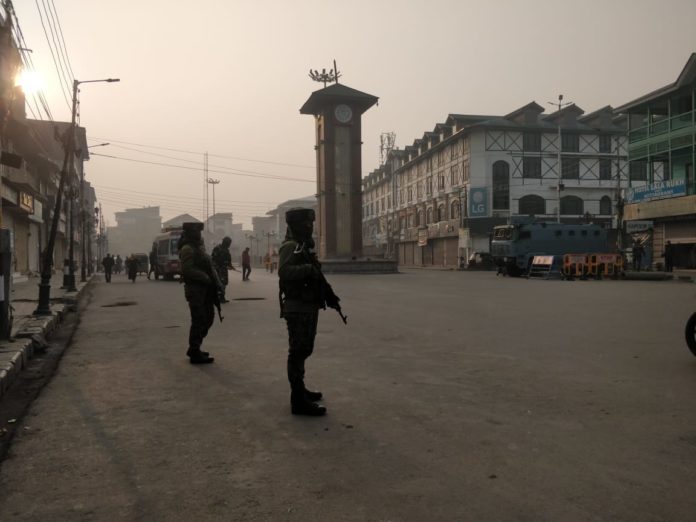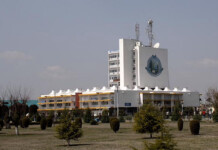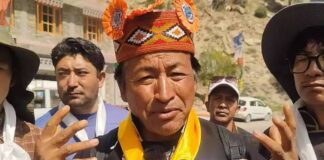The construction of security bunkers in Kashmir is not a new phenomena. As they have made a comeback in Srinagar, locals say a danger lurks in the corner. Women fear for their safety as the bunkers could be the targets of militant attacks as in the past. For some, they dig up the ghosts of the past.
Security forces started constructing bunkers after the rise in militancy in 1989. However, between 2011 and 2014, many bunkers in Srinagar were removed in view of the ‘improvement in situation’. They again made a comeback after August 2019 and their number marginally increased in 2021 after numerous civilian killings.
A clinical psychologist, who did not wish to be named, said, “Having guns and uniformed men around creates a fear in the psyche of children and they know what it means to have such things around.”
However, the children of the 1990s, when the bunkers came up in the city and the current generation, have something in common i.e. the terror that the bunkers evoke in them.
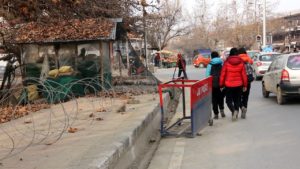
“I have seen bunkers since my childhood. My subconscious mind has adjusted to it but I never feel comfortable around these,” says Zeeshan, who is 19 years old. “Because of the bunkers, I always feel imprisoned.”
As women and female students were recently frisked by security forces in the city centre Lal Chowk, privacy seems to have become the biggest concern for many.
“I have always been concerned about my privacy and safety when I have to pass by a bunker,” says Asiya (name changed).
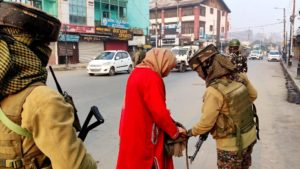
The mushrooming of bunkers and frequent frisking in the city has also added to the miseries of travelers.
“They have blocked roads which cause inconvenience, especially during an emergency,” says Zainab (name changed).
She says, “I feel uncomfortable and nervous around bunkers and security men. They remind me of an uncertain present and future. I feel unsafe and I become emotional and aggressive simultaneously.”
Asiya, a Srinagar resident, has her concerns. She says that whenever she passes by a bunker or uniformed men, she worries about the intention with which the personnel might be staring at her.
A college student, Rabia (name changed), said, “It feels like someone is always stalking you.”
A clinical psychologist based in Srinagar said wherever there was conflict, people suffered from anxiety, depression and Post Traumatic Stress Disorder.
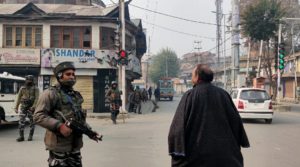
Zareef Ahmed Zareef, a renowned Kashmiri poet and historian, says, “It creates problems especially during emergency and night to have roads blocked by barricades and wires. Having bunkers around will keep the problem still and never solve anything.”
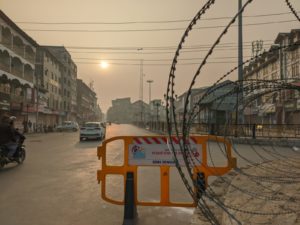
Zareef said, “These places are more vulnerable to attacks and we lose humans and families mourn. These bunkers are injustice to those soldiers also who come from outside Kashmir and are compelled to survive in the bone-chilling winter.”
The poet said frisking called into question the existence of people living here. He said, “They ask me, who are you? I am a descendent of Kashmir. The fact is, who is he to question my existence?”

Maleeha Sofi
Pursuing BA Honors in Journalism & Mass Communication and currently interning at The Indus Post.


